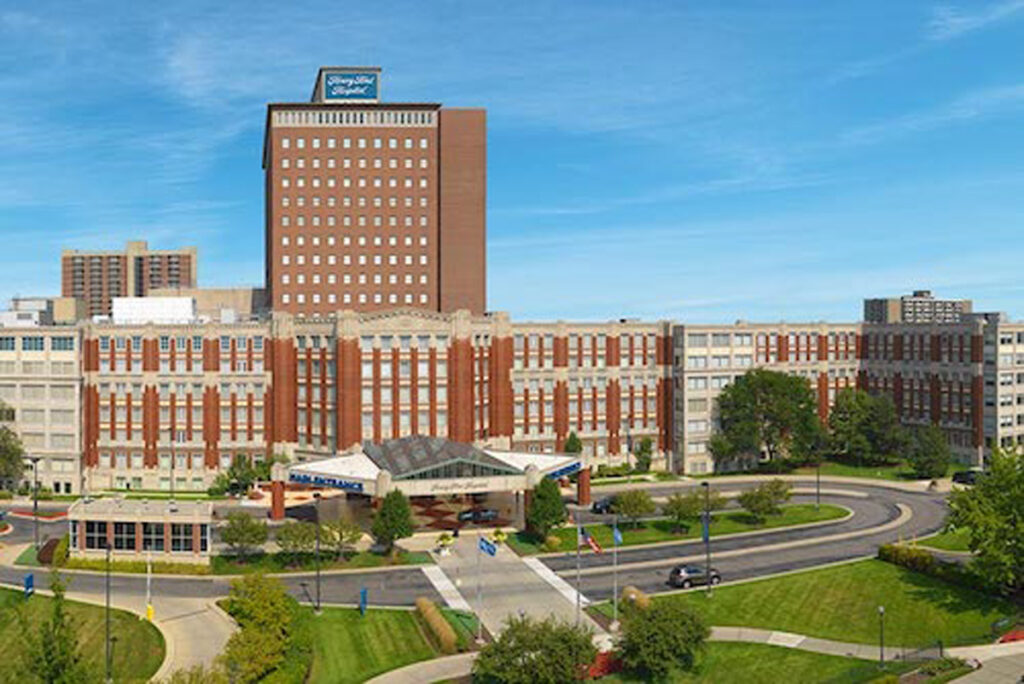September 2022 – The Journal of Healthcare Contracting

Midwest: Henry Ford Health wins 2022 Premier Alliance Excellence Award
Premier has named Henry Ford Health, an integrated nonprofit health system providing a full continuum of services throughout southeast Michigan, the winner of the 2022 Premier Alliance Excellence Award.
The Alliance Excellence Award recognizes innovative healthcare providers that demonstrate an unparalleled commitment to healthcare transformation, using Premier as a key partner. Henry Ford Health – which includes five acute care hospitals, two destination facilities for complex cancer and orthopedics and sports medicine care, three behavioral health facilities, primary care and urgent care centers – supports Premier’s strategy and vision through its participation in more than half a dozen committees, including Premier’s Board of Directors Advisory Committee and Strategic Advisory Committee, as well as SURPASS®, Premier’s highly committed purchasing program.
In addition, Henry Ford Health leverages Premier’s strategic supply chain services, Remitra™ procure-to-pay technology, and the full range of PINC AI™ data and technology tools – including INsights clinical intelligence, advisory services and collaboratives – in its delivery of exceptional, cost-effective care throughout the communities it serves. Through Henry Ford Innovations (HFI), the health system partners with PINC AI™ Applied Sciences to accelerate the research, testing and development of new products, services, interventions and other novel healthcare initiatives.
Henry Ford Health was selected from Premier’s nationwide alliance of more than 4,400 U.S. hospitals and 225,000 other provider organizations.
Midwest: UPMC breaks ground on new UPMC Presbyterian
UPMC has broken ground on the largest hospital in Pittsburgh’s history and the largest health care construction project
in Pennsylvania.
The new $1.5 billion, 17-story UPMC Presbyterian, to be completed in 2026, will be home to 636 private patient rooms and premier people-focused clinical facilities where UPMC clinical teams and physician-scientists will deliver nationally renowned specialty care that includes transplant, cardiology and cardiac surgery, and neurology and neurosurgery. The existing UPMC Presbyterian was built more than a century ago.
The spaces within the building are designed to embrace technological advances while supporting patients and staff in an attractive environment that matches the innovation and care provided by UPMC.
The new UPMC Presbyterian is the second major project to begin construction since UPMC first announced three new, large facilities several years ago. The UPMC Mercy Pavilion will treat its first patients in spring 2023.
Details about the new UPMC Presbyterian campus:
- The new UPMC Presbyterian is the most transformative construction project in the history of UPMC and the flagship hospital where patients with the most complex conditions will receive life-saving care.
- The hospital will house specialties that include transplant, cardiology and cardiac surgery, and neurology and neurological care from world-renowned physicians and clinical teams.
- The 17-story, $1.5 billion project will encompass 1.2 million square feet of space.
- The project will create an estimated 3,400 construction jobs over four years and offer significant opportunities for Minority, Women and Disadvantaged Business Enterprise vendors.
- The hospital will include 636 private patient rooms with innovative in-room digital capabilities, respite areas and a gym for use by staff and visitors.
- Nearly one-fourth of patient rooms can be adapted to become intensive care rooms. Acuity-adaptable rooms will allow patients to transition through their care in the same space – limiting patients transferring from one unit and care team to another as they recover.
- The building will meet or exceed green building standards.
- The tower’s design captures UPMC’s vision for linking patients, visitors and staff to nature and to Pittsburgh’s Oakland neighborhood.
- The hospital façade will be made of energy-efficient, patterned glass, and will reflect and blend into the design of the existing campus and surrounding neighborhood.
- A 450-space parking garage will reduce congestion at existing parking facilities.
Northeast: Mount Sinai researchers develop a rapid test to measure immunity to COVID-19
Mount Sinai researchers have developed a rapid blood assay that measures the magnitude and duration of someone’s immunity to SARS-CoV-2, the virus that causes COVID-19. This test will allow large-scale monitoring of the population’s immunity and the effectiveness of current vaccines to help design revaccination strategies for vulnerable immunosuppressed individuals, according to a study published in Nature Biotechnology in June.
The test takes less than 24 hours to perform and is scalable to use broadly in the population. It measures the activation of T cells, which are part of our adaptive immune response to SARS-CoV-2 infection or vaccination and help protect against severe disease outcomes or death.
Long-term protection from viral infection is mediated by both antibodies and T cell response. Many recent studies point to the importance of determining T cell function in individuals who have recovered from or been vaccinated against COVID-19 to help design vaccination campaigns. However, before this study, measurement of T cell responses has been rarely performed because of the associated technical challenges.
South: Federal government fines Northside Hospital over $1 million for not sharing medical prices
According to a report from The Atlanta Journal-Constitution, the federal government has fined Northside Hospital for violating the rights of patients to transparent health care price information. Last year, CMS started to require hospitals across the country to post the price of certain services on their websites.
This measure is intended to help patients shop and plan for the cost of medical care, and the lists are required to be posted in specific formats that are accessible and consumer friendly. After the federal rule was implemented, CMS contacted hospitals across the country that didn’t comply and warned them of the violations before issuing fines.
The AJC examined hospital compliance in Georgia with the new federal rules, scoring each with a report card. Northside scored the lowest in The AJC’s findings.
